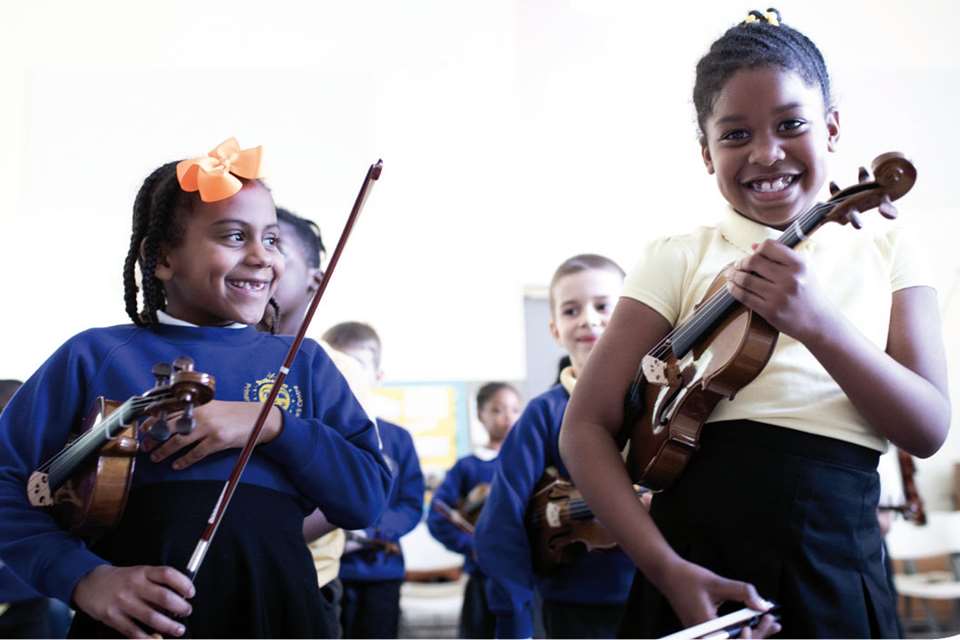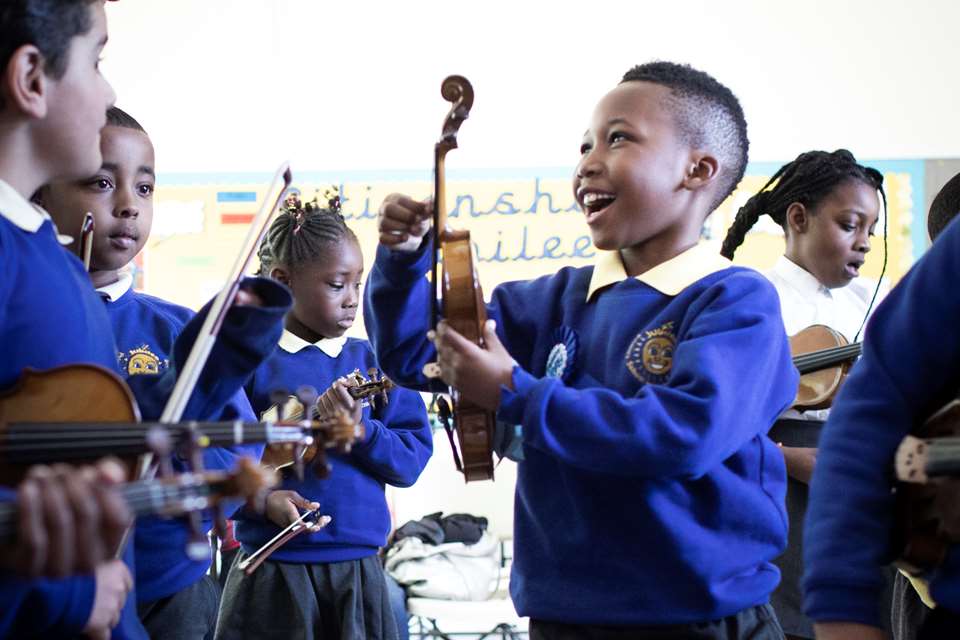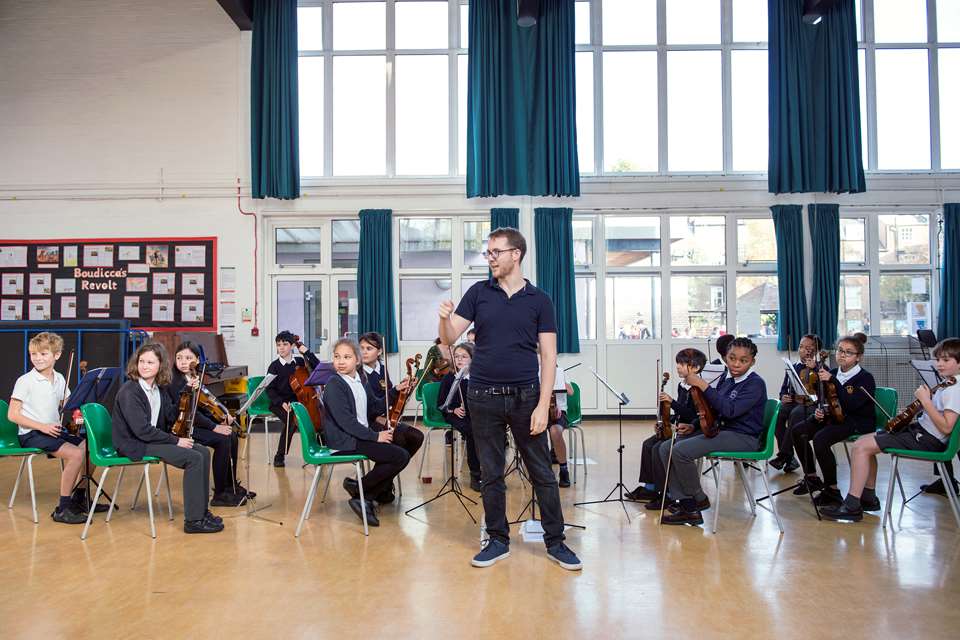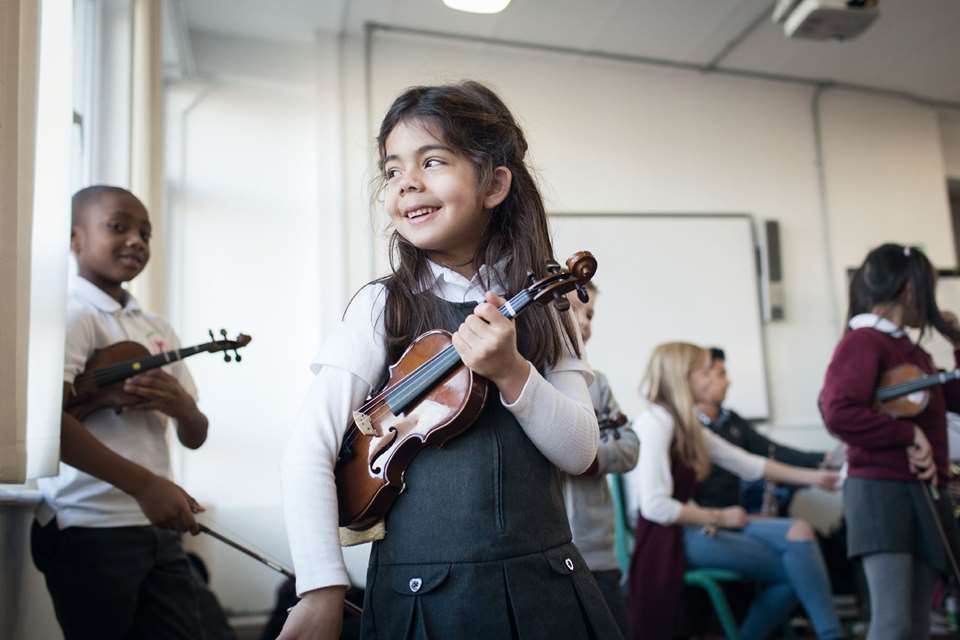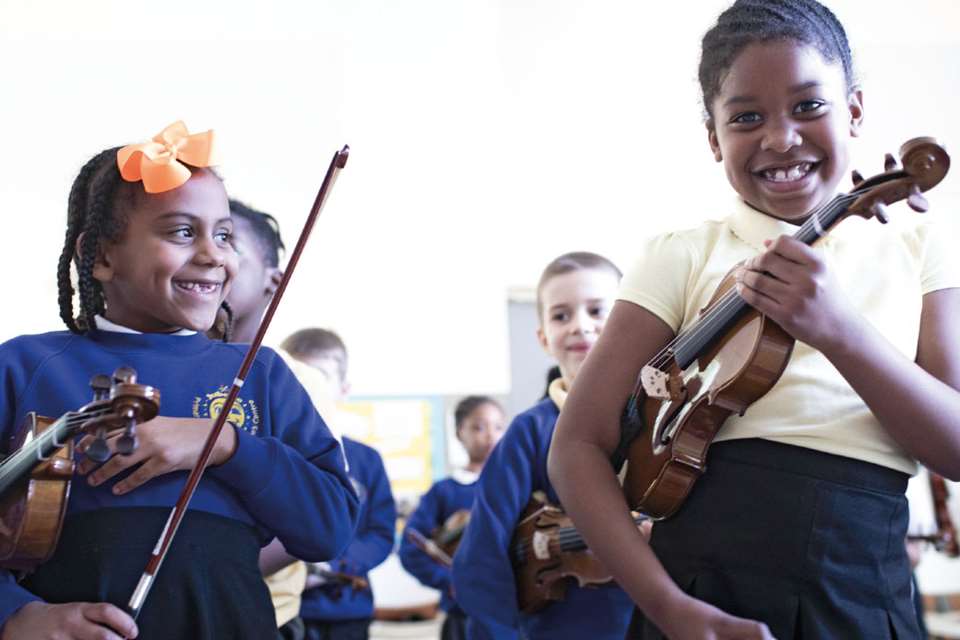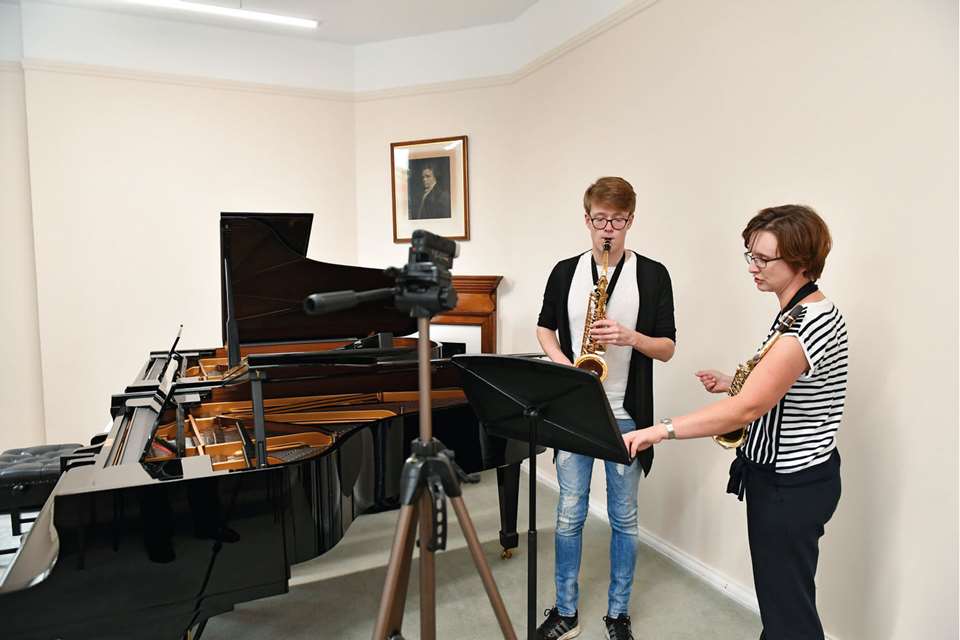Music Masters Musicians of Change PGCEi: Improving instrumental group teaching for all
Phil Croydon
Wednesday, March 1, 2023
MT's Phil Croydon investigates a ground-breaking programme for instrumental teachers, in discussion with Katrina Damigos, head of teacher training at Music Masters.

Benjamin Ealovega
Five years ago, the music education charity Music Masters, in partnership with Birmingham City University's (BCU) School of Education and Social Work, launched the first Postgraduate Certificate of Education (International) dedicated to instrumental group teaching. The Musicians of Change PGCEi (in Group Instrument Learning) sought to address a shortage of skills at a time when demand for group teaching was growing, particularly with the arrival of Wider Opportunities.
From Music Masters' perspective, the programme reflected two core aims: to improve the standard of group instrumental learning for all children, and to provide access to UK communities facing systemic inequality or disadvantage. Inclusivity was and is central to their mission, as is creating a diverse music industry.
The PGCEi also addressed the needs of schools and teachers. It provided a pathway for graduates who wanted to be instrumental, not class, teachers, and gave them a professional qualification where some felt undervalued at work. For those in schools, it also brought parity (on paper at least) as it adopted formal Teaching Standards and a vocabulary linked to general class teaching. For the employers, it helped identify musicians committed to a career in instrumental teaching, and provided a means for developing and retaining staff.
The programme
The Musicians of Change PGCEi is a year-long programme for music educators of any instrument teachable in groups (whole-class ensemble or small groups) in primary, secondary and community settings. It is taught through a blend of lectures and workshops, during an induction week and five weekends; in-school observations; group study sessions; personal mentoring; and additional evening ‘twilight’ sessions. Currently, the split between in-person and online activities is around 55/45 per cent in favour of online. Students have access to Moodle, the virtual-learning platform, and a wide range of resources, including those at BCU.
Equality, diversity and inclusion
Knowing Music Masters' remit, to embrace diversity in the UK, I ask Damigos, Musicians of Change (PGCEi) course leader, how this is being met. Unsurprisingly, this is embedded in the programme's content. Dedicated sessions unpack areas of EDI within music education, such as bias awareness, language, socioeconomic considerations, and provision for SEN/D and neurodiversity. Cutting-edge research is available thanks to ties with BCU and leading practitioners (among them Gary Spruce, Jenetta Hurst, Dr Anna Bull, Helen Dromey, Mahaliah Edwards, Kris Halpin, Ros Hawley) and there are opportunities to hear from those with lived experience. To reinforce the learning, student portfolios must contain evidence of development in these areas through lesson plans, observations and assignments.
Original approaches to diversifying the repertoire are also a focus. As one student observes, ‘I was especially struck by [teacher] Matt Hickman's project looking at composers from all over the world, and the visual aid of the map showing where they come from, including children from the school. This sense of putting music in context and showing the children a world outside their own experience was very powerful. This gave them not only a sense of diversity in music, but also a sense of themselves as being fully included in a world where their voices were as important as those of “famous” composers.’
The team at Music Masters reports a 34 per cent increase in confidence scores of students meeting the diverse needs of learners.
Student support and funding
What level of support is there for students with day jobs? Each student has an individual mentor who works with them across the year. The mentor visits the student in their teaching setting, supports their portfolio, and offers shadowing opportunities. For observation and shadowing, students have access to Music Masters flagship schools in London. Further support is provided by the programme team and a designated academic tutor, for pastoral or academic support, and from previous graduates. Scheduled study activities, such as student podcasts, book clubs and assignment brainstorming, help time-poor teachers maximise their time in a creative and collaborative way, e.g. with studying core texts.
The fees for eligible applicants are highly subsidised thanks to charitable funding: unsubsidised programme places costs £6000, whereas a subsidised place (for 2023/24) is £1,500. In addition, there is an impressive range of bursaries on offer, from free places for ethnically diverse and disabled applicants to discounted fees for those with caring responsibilities or working in high priority areas.
‘Given that funding for teacher training and music teaching is not a priority for the government, we care tremendously that the costs associated with teacher training should not fall entirely on the hard-working and often underpaid teachers themselves’, says Damigos.
Student experience
A large proportion of students on the programme cite the sense of community as its main success. With a yearly cohort of around 20 students, it's easy to see how this might be the case. However, five years' worth of students passing through the programme has created a small but effective Graduate Network for life after the course. This provides access to conferences, coaching training, courses for developing leadership skills – all of which are free – and opportunities to mentor future cohorts.
Another success is the programme's accessibility; how it wraps around full-time work and family. The current cohort of students regard the balance of online versus offline working as ‘good’. This balance, as with all sectors, is constantly reviewed, but there's additional flexibility in how the programme responds to where in the UK most of the cohort of students live. Sessions can and do move, as students from Scotland, Wales and the north of England will testify.
One 2021/22 student observes: ‘I would not have pursued further education if I wasn't able to do it from home. It [the course] was very forward-thinking and feels like it was built with the students in mind’.


